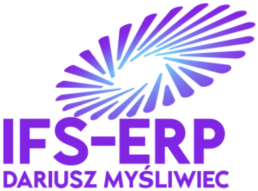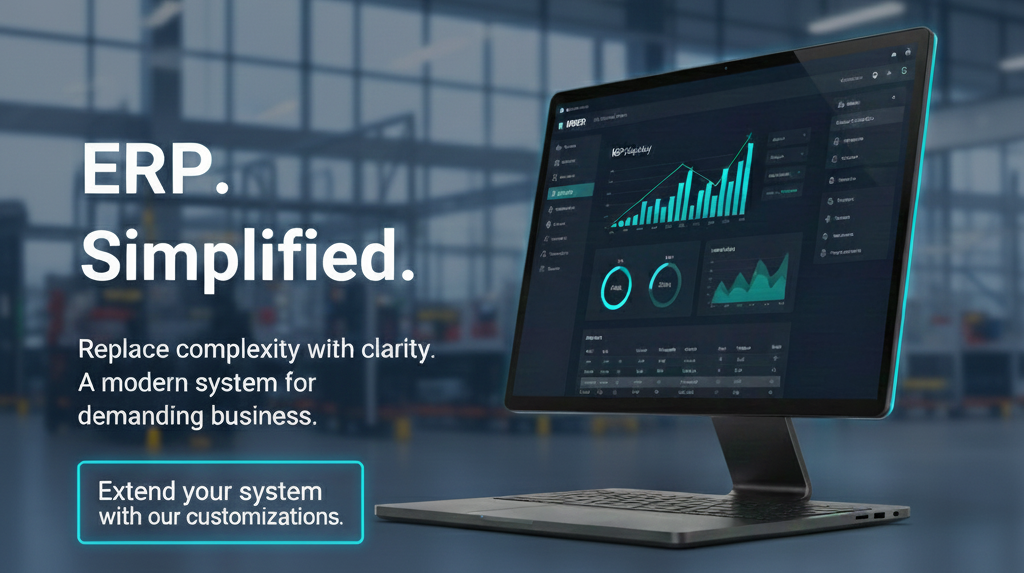TL;DR: Executive Summary for CIOs & Sponsors
The Problem: Implementing IFS Cloud without a formal governance structure leads to «Data Swamps» — where data quality degrades, domain ownership is unclear, and the «Single Source of Truth» becomes a myth. 60% of ERP delays are caused by poor data readiness.
The Solution: A Federated Data Governance Committee. Unlike old-school centralized control (which becomes a bottleneck), this committee empowers business domains (Finance, Manufacturing, Service) to own their data products while adhering to global standards set by the committee.
The Payoff: Establishing this committee in Phase 0 results in:
30% faster data migration due to clear decision authority.
Higher user adoption as data trusts are established early.
Regulatory compliance (GDPR, SOX) built into the design, not patched later.
Governing the Mesh: The Role of the Committee
A Data Governance Committee provides the essential oversight required for successful IFS Cloud Data Mesh implementations. It acts as the legislative branch of your ERP ecosystem, bringing together representatives from each business domain to make binding decisions about data standards, compliance, and quality.
In the context of a Data Mesh architecture, the role of the committee shifts from «Command and Control» to «Federated Governance.» In a traditional monolithic ERP setup, IT often tried to police every data entry field. In a modern IFS Cloud implementation, the Committee sets the «Rules of the Road» (Interoperability standards, Security policies, Syntax requirements) while allowing the individual drivers (Business Domains) to navigate their own vehicles.
The objective is to balance central control — necessary for consolidated financial reporting and global supply chain visibility — with domain autonomy, which allows the Manufacturing team to optimize their shop floor data without waiting for permission from the Finance department.
Committee Composition: Roles & Responsibilities
A successful Data Governance Committee is cross-functional by design. It cannot be an «IT-only» meeting. To work effectively within IFS Cloud, it requires the following tiered structure:
Executive Sponsorship
Who: CIO, CFO, COO, or CDO.
Responsibility: They do not debate column names. They approve the budget for data quality tools, resolve high-level conflicts (e.g., «Does Manufacturing or Sales own the Customer Delivery Date?»), and enforce adoption. Without visible support from this level, domain owners often deprioritize governance tasks.
- Approves Data Strategy Roadmap.
- Resolves budget disputes.
- Enforces organizational change management.
Business Process Owners
Who: VP of Supply Chain, Plant Managers, Financial Controllers.
Responsibility: These represent the «Nodes» in the Data Mesh. They are accountable for the quality of the data *produced* by their domain. If the inventory data is wrong, the Supply Chain Domain Owner is responsible for fixing the root cause process, not IT.
- Defines business definitions for data.
- Approves access requests to their domain’s data products.
- Ensures their team follows committee standards.
Power Users & SMEs
Who: Senior Accountants, Master Schedulers, Maintenance Planners.
Responsibility: The «boots on the ground.» In IFS Cloud, they are often the ones configuring the Data Migration Manager (DMM) templates and validating migration results. They define the specific validation rules (e.g., «Vendor Tax ID is mandatory for EU suppliers»).
- Executes data cleansing campaigns.
- Monitors Data Quality Lobbies in IFS Cloud.
- Mentors end-users on correct data entry.
Technical & Legal Oversight
Who: Solution Architects, CISO, Legal Counsel.
Responsibility: Ensuring the «Mesh» holds together. Architects ensure that the Customer ID in CRM maps correctly to the Customer ID in Finance. Compliance officers ensure that PII (Personally Identifiable Information) in the HR module is handled according to GDPR/CCPA.
- Defines Integration Standards (REST APIs).
- Sets Security Permission Set structures.
- Audits data retention policies.
The Federated Mesh
Domain Representation Requirements
The committee cannot function if it is lopsided. A common failure mode is a Finance-dominated committee that imposes rigid structures on flexible Manufacturing processes. Each major business domain within the IFS Cloud footprint needs a seat at the table.
Common domains that must be represented include:
- Finance & Accounting: Guardians of the General Ledger, Tax, and Fixed Assets.
- Supply Chain Management: Owners of Parts, Procurement, and Inventory logistics.
- Manufacturing & Production: Owners of Routings, Work Centers, and Shop Floor reporting.
- Human Capital (HR): Owners of Employee data, Qualifications, and Time & Attendance.
- CRM & Sales: Owners of Customer Prospects, Pipelines, and Quotes.
- Asset Management (EAM): Owners of Equipment Objects, Preventive Maintenance, and Work Orders.
- Project Management: Owners of Project Structures, Budgets, and Forecasting.
The Formation Process: 5‑Step Framework
Don’t wait until User Acceptance Testing (UAT) to form this group. By then, the data structures are already configured. The committee should be formed in Phase 0 or the early Design Phase.
Data Stewards -> Domain Owners -> Governance Committee -> Steering Committee. Most issues should be resolved at the Steward level.
Core Responsibilities & Decision Making
The committee creates the framework within which the domains operate. Their primary responsibilities include:
Global Standards
Setting data quality standards that apply across all domains. For example, defining the standard format for Addresses, Dates, and Units of Measure. Ensuring that «KG» is used consistently, not mixed with «Kgs» or «Kilograms.»
Data Sharing Agreements
Approving the «Contracts» between domains. If Manufacturing needs data from Engineering, the Committee ensures that Engineering commits to providing that data with a specific Service Level Agreement (SLA) regarding timeliness and accuracy.
Compliance & Security
Reviewing compliance with security and regulatory requirements. In IFS Cloud, this translates to reviewing Permission Sets and Segregation of Duties (SoD) matrices to ensure no single user has dangerous levels of access.
Dispute Resolution
Resolving ownership disputes. Who owns the «Customer Master»? Is it Sales (who bring in the customer) or Finance (who bill the customer)? The committee acts as the supreme court for these jurisdiction battles.
Meeting Structure & Rhythm
Governance is a process, not an event. A typical rhythm for an active implementation includes:
- Monthly Full Committee: Strategic decisions, roadmap review, and policy ratification.
- Weekly Domain Check-ins: Operational issues, migration status updates, and blocker removal.
- Quarterly Steering Reviews: Budget alignment, resource requests, and high-level ROI analysis.
- Ad-hoc Sessions: Immediate response teams for data security incidents or critical Go-Live blockers.
Measuring Success
How do you know if the committee is working?
- Resolution Time Speed
- Are cross-domain conflicts resolved in days, or do they linger for months?
- Data Quality Scores Quality
- Are the Data Quality Lobbies in IFS showing a trend toward 100%?
- Audit Findings Compliance
- Reduction in data-related findings during external audits.
Leveraging IFS Cloud Tools for Governance
The Committee does not operate in a vacuum; it operates within the software. The most effective committees utilize native IFS Cloud capabilities to enforce their decisions.
Data Migration Manager (DMM)
The committee approves the Migration Jobs and Validation Rules within DMM. This tool is the primary «gatekeeper» ensuring legacy data meets the new standards before it enters the production environment.
IFS Lobbies
Governance should be visible. Build specific «Data Quality Control Tower» Lobbies. These dashboards display real-time metrics on incomplete records, duplicate customers, or missing mandatory fields, giving the committee a live view of the system’s health.
Custom Events & BPA
Automate governance. Use Business Process Automation (BPA) to prevent users from entering bad data. For example, configure a BPA to block the release of a Purchase Order if the Supplier lacks a valid insurance certificate.
Frequently Asked Questions
Content Validation: This guide aligns with IFS Cloud implementation methodology and standard Data Mesh principles (Zhamak Dehghani). It provides actionable steps for forming a Data Governance Committee, emphasizing the distinction between Strategic (Steering), Tactical (Domain), and Operational (Steward) roles, and integrates specific IFS Cloud tooling references.


